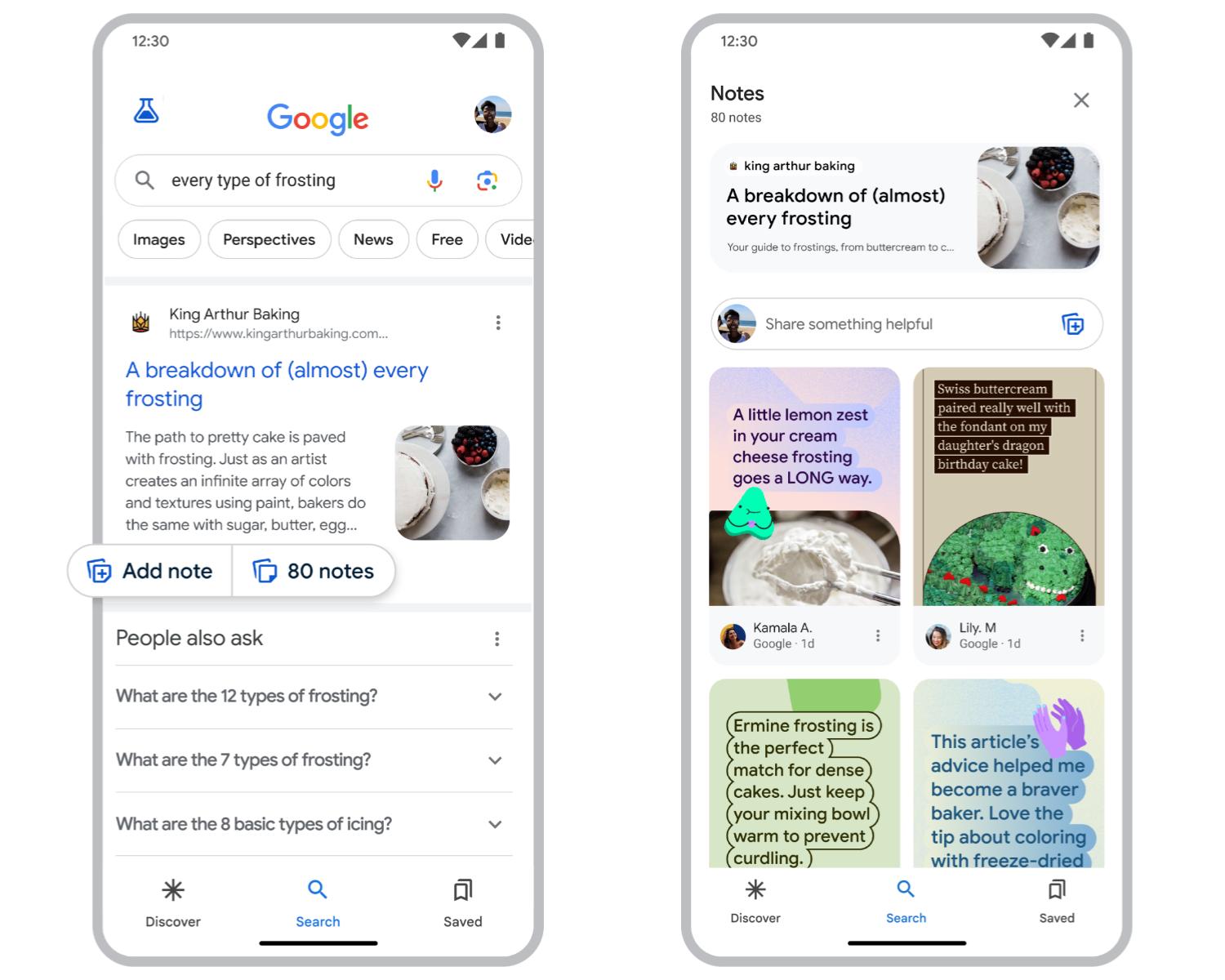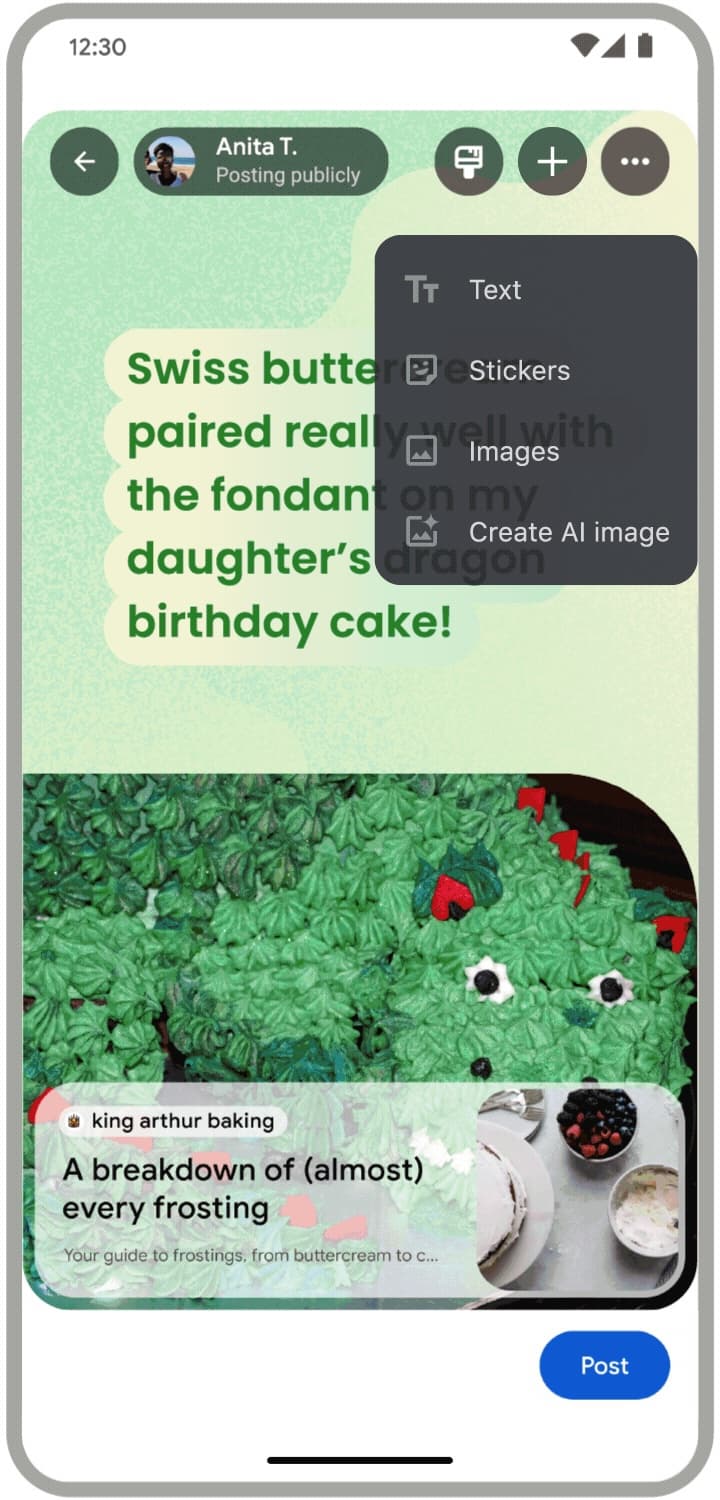
In a bid to have Search surface more authentically human content, Google is experimenting with a quick way for people to create and read “Notes” that contain “helpful tips about an article or topic from both experts and everyday people.”
In the beginning, Search surfaced (and indexed) web pages to direct people to the right answer. With Featured Snippets, Google has direct quotes at the top of the results page, while Search is now also showing videos, images, and posts that people have “shared on discussion boards, Q&A sites, and social media platforms” as part of the Perspectives tab (which launched on mobile earlier this year and is coming soon to desktop).
That filter is partially in response to the popularity of people adding “Reddit” to their query to get answers that – for the most part – are actually written by humans. Google now wants to experiment with giving people a way to share their firsthand knowledge directly in Search.
We’ve seen in our research that people are interested in what people like them are saying about a given web page. Notes are designed to work hand-in-hand with existing content on the web, adding a new layer of human insights to your search results.
Underneath most Google Search results and articles in Discover, you’ll see buttons for “Add note” and “Notes.” The latter opens a grid of these static, portrait stories that are similar to what you’d find on Instagram and Snapchat.
When you view a Note, you can Like, Share, and Save it for later, as well as report it to Google for review. The company is using algorithmic protections and human review to make sure Notes are helpful and safe. Google ranks each note for a given web page based on its relevance to the Search term.
They will appear on most content (e.g., fashion, video games, etc.) but not sensitive topics related to health, elections, and “civics.”
Google believes that people will want to share helpful tips/advice and that Notes provides a lightweight method for doing so:
Notes might help you uncover tips about which neighborhoods might be best for you in an article about a new city, or how to tone down the spice level on a recipe. Or maybe a baking guide helped you create the perfect color frosting — you can leave a note to help other people avoid first-timer mistakes.
When creating a note, you can add text, images (from Image Search or your device), and stickers (which can be animated). There are also several backgrounds and the ability to adjust color. These options are all very straightforward if you’ve used a modern social network, while an upcoming feature will let you add an AI-generated image to the note.
However, this is very much not meant to be a social network, despite the similarities. You can only post about an existing article, and Notes cannot have links.
For publishers, Google is not trying to replace existing content and views Notes as working hand-in-hand with the underlying article. The company will provide site owners with “insights into notes on their content.” However, another way to view it is Google competing with the native comment systems on sites. That said, the inability to directly reply to Notes might be enough of a distinction.
This Notes feature is launching as an opt-in experiment via Search Labs for Android and iOS Google app users in the US (English) and India (English & Hindi) starting today.
Google is aiming to gather feedback and see how people use it: “As with all Labs experiments, we’ll use this time to test and learn what works best for users before bringing these capabilities to a broader audience on Search.”
Meanwhile, Google is going to let you “Follow” searches “to get updates” whenever there is “useful, new-to-you information.” You can choose to be alerted via a Google app notification, as well as Search results and Discover. In the latter feed, you’ll see the term/query you’re subscribed to appear in a mini-Search bar. This is launching in the coming weeks for US English on mobile.
In addition to Perspectives launching on desktop, Google will now surface “new information on search results that highlights information about the individual creator.” This includes their social handle and follower count
For specific queries, like the “best running trails in [city,]” Google might also surface sites you frequently visit at the top of the results page. When this occurs, Search will apply a “You visit often” label. This is coming later this year.
FTC: We use income earning auto affiliate links. More.










Comments